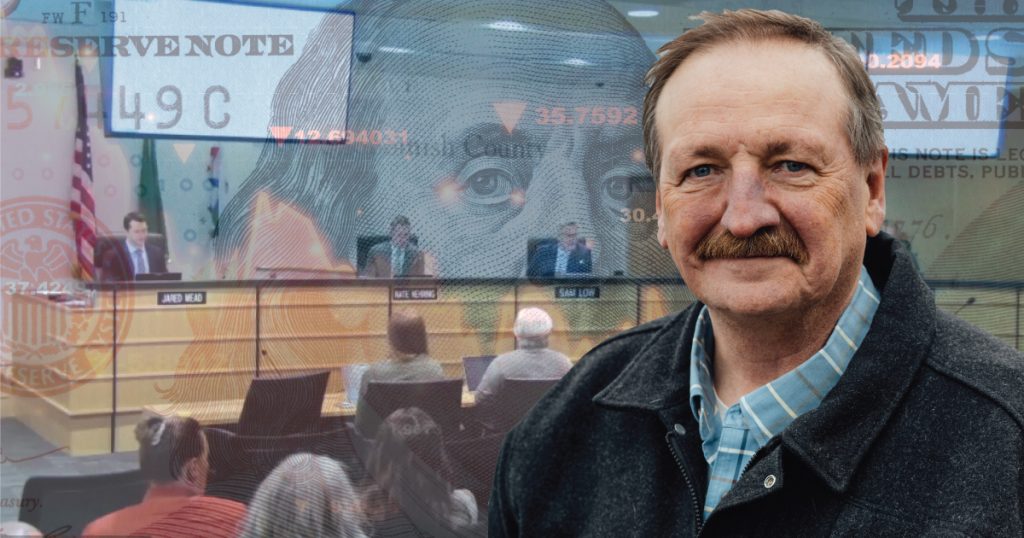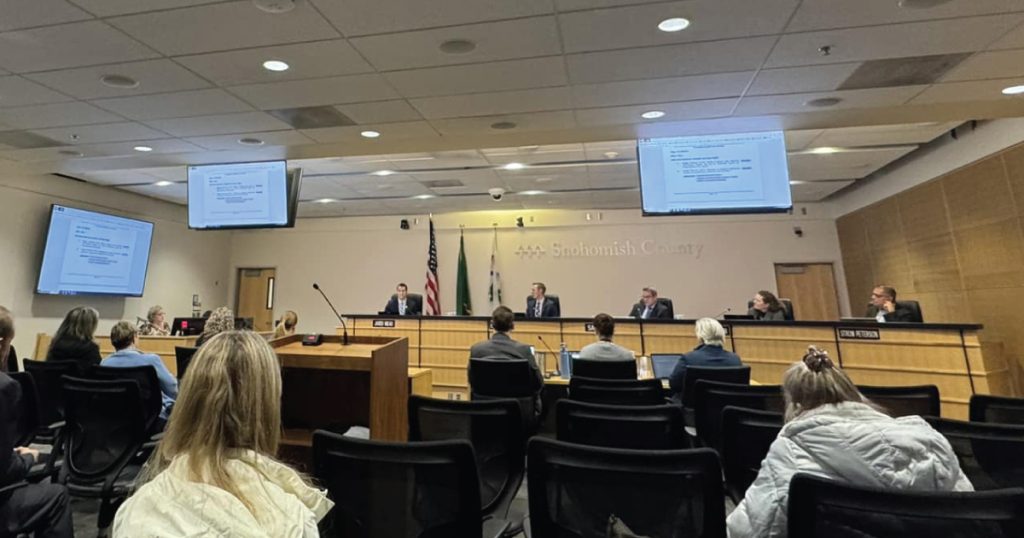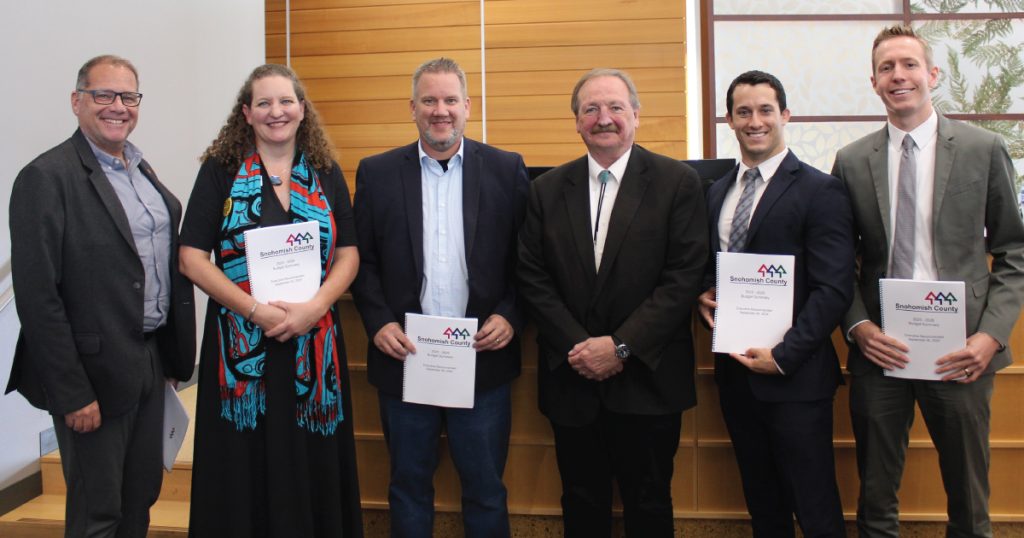EVERETT—In a surprising use of his authority, Snohomish County Executive Dave Somers, known for his reserved and sagacious leadership, announced late Friday afternoon that he will not sign the $3.22 billion 2025-26 biennium Council-adopted budget.

“Since receiving the budget from the County Council on November 27, my team and I have been carefully reviewing what was adopted,” Somers wrote in a statement. “While I did strongly consider a veto, I have instead decided to allow the budget to be enacted without my signature.”
Somers delivered the county’s first biennial budget to the County Council on Wednesday, September 4. The proposed budget prioritized public safety, continued efforts to protect the land and water, preserved existing programs focused on addressing the drug crisis, provided direct health services through the Health Department while also continuing to direct resources to the Department of Public Works, and other countywide services.
However, the weeks leading up to the approval of the budget on November 25 were met with a heated public hearing on a proposed property tax increase and controversy surrounding an audit finding of “duplicative” and “overlapping” staff positions which led to the ousting of former Sheriff Ty Trenary. In February of 2020, Somers appointed Trenary as Senior Policy Analyst—a newly created position—to focus on public safety and issues that intersected with multiple departments and agencies.
A week after the damning audit report by George Skiles, Partner at Sjoberg-Evanshenk Consulting, and a two-and-a-half hour public hearing a week before that, County Executive Somers stood firm and cleared the air on his proposed budget saying: “My proposed budget does not add or remove programs. We are striving to hold steady in the coming biennium, despite a systemic budget shortfall as revenues fail to keep pace with rising costs. Snohomish County has a track record of making the most with limited resources, and I am mindful of the impact any increase in the county’s property tax levy could have on people.”

Executive Somers somewhat echoed this with Friday’s remarks on not signing the Council-adopted budget elaborating further stating that his proposed budget was “responsible and balanced.”
“[The proposed budget] included spending cuts across departments and offices that totaled about $8 million annually, rejected nearly every request received by county departments for new general fund positions, and included a modest property tax increase of about $2 per month or $24 per year on an average-valued home by 2026. My goal was – and will always remain – to make sure we can balance our budget, fulfill our responsibilities, and continue to run an efficient county government,” Somers wrote.
County Council President Jared Mead commended Somers for “putting the interests of our county” first by not exercising his veto power to reject the budget.
“I’d like to thank Executive Somers for his careful consideration of the budget,” Council President Mead wrote in a statement to the Lynnwood Times. “I recognize we did not agree on every aspect of the final product but we did agree on the vast majority.

“The fact that Executive Somers decided against exercising his veto authority despite his disagreement with certain aspects of the final product shows he is putting the interests of our county before the ‘all or nothing’ politics that plagues our country at the national level. This entire process reflects the kind of compromise and leadership our residents expect of us in Snohomish County.”
Mead along with council members Megan Dunn and Strom Peterson all voted in favor of the biennium budget with Council Vice President Nate Nehring and Sam Low voting against.
“I voted ‘no’ on the budget as I don’t believe it was appropriate to raise property taxes without a more serious look at spending reductions,” Council Vice President Nehring wrote in a statement to the Lynnwood Times on Somers refusal to sign the budget. “I will continue to advocate for fiscal restraint on behalf of the taxpayers we are elected to represent.”
Because the County Council has an upcoming two-week winter recess, Somers shared that there was not sufficient time to resolve disagreements with the County-adopted budget without risking a temporary shutdown of county government, something he vehemently wanted to avoid.
“That [a government shutdown] would be unacceptable and I cannot in good conscience do that to our dedicated employees or to the public we serve,” wrote Somers. “Over the next two years, I will work with my team to identify measures and strategies to lessen the negative impacts of this budget if it were to be fully enacted as adopted.”
Snohomish County, which remains one of the most populus counties in Washington State, has one of the smallest General Fund budgets per capita. It’s about 73% that of Pierce County, which is of comparable size, and has the lowest tax rate out of King, Pierce, and Snohomish. The county has about a $10 million shortfall every year just to keep up with cost increases for salaries and benefits for county employees. One of the reasons the county moved to a biennial budget this year is to be smarter about its General Fund resources, alleviating the amount of work done every other year by a more efficient budget process.
With the opioid epidemic plaguing communities, and over 75% of the General Fund budget already being directed towards public safety, the County placed a 0.2% sales tax increase on the November General Election which would have gone towards bolstering public safety funds. However, voters overwhelmingly voted that down by almost 14 points.

Editor’s Note: Kienan Briscoe contributed to this article.
Author: Mario Lotmore













One Response
These council members ramming a property tax hike against the will of the people is unconscionable and I for one will be looking for their names on the next ballot and voting against them!